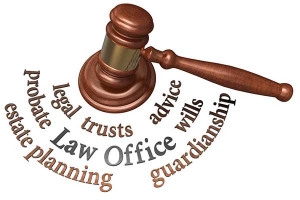
Understanding the Legal Concept of Guardianship in Florida
In order to understand the effects of the appointment of a guardian on parental rights, it is first important to understand the nature of guardianship. As we have previously discussed, a guardian is not a parent and a guardian is not granted parental rights. While a guardian may serve in a parent-like role (for example, by providing the child with a place to live or managing the child’s finances), the guardian does not “stand in the shoes” of the child’s parents. Instead, the guardian’s role is to protect the child’s best interests until either: (i) the child reaches the age of majority, or (ii) the guardianship is terminated for other reasons.
As explained by the Florida Courts:
“A guardian is a surrogate decision-maker appointed by the court to make either personal and/or financial decisions for a minor or for an adult with mental or physical disabilities. After adjudication, the subject of the guardianship is termed a ‘ward’ . . . .
“Florida law provides for limited as well as plenary adult guardianship. A limited guardianship is appropriate if the court finds the ward lacks the capacity to do some, but not all, of the tasks necessary to care for his or her person or property . . . . A plenary guardian is a person appointed by the court to exercise all delegable legal rights and powers of the Another way to think about guardianship is to contrast it with adoption: In an adoption, the adoptive parents assume all rights and responsibilities of the child’s biological parents, and the biological parents’ parental rights are terminated. With guardianship, the guardian is appointed on a temporary basis to protect the child’s best interests, and the parents’ rights are not terminated. As we mentioned above, a particular guardian’s rights and responsibilities will be determined by the court on a case-by-case basis. Depending upon the circumstances involved, these rights and responsibilities may include: Once appointed, a guardian cannot “quit” and a guardian cannot be “fired” by a ward. The guardian must continue to serve in the role until the guardianship is terminated pursuant to a court order. To the extent that any powers granted to the guardian are inconsistent with those of the child’s parents, the guardianship order will control. So, while the parents’ rights will not be terminated by the appointment of a guardian, a guardianship can override parental rights to the extent ordered by the court. In all cases, when the appointment of a guardian is necessary, Florida law requires that the guardianship be of the “least restrictive form” possible. This requirement is founded on two basic principles: (i) wards should not be deprived of any more rights than is absolutely necessary for their protection, and (ii) it is generally in a child’s best interests to have their parents actively involved in their life. Despite the limited nature of guardianship, there are circumstances in which the appointment of a guardian may not be necessary in order to adequately meet a minor child’s needs. As a result, when considering guardianship – whether with or against the parents’ wishes – it is important to consider the alternatives as well. Depending on the circumstances involved, these may include: Learn more: Florida Guardianship Alternatives. Due to the implications of appointing a guardian for a minor child (including the implications for the rights of both the parents and the child), Florida law imposes strict requirements for guardianship proceedings. The proposed guardian (or other interested party) must be able to demonstrate that guardianship is necessary and that the proposed guardianship is the “least restrictive” alternative for the child. If guardianship is being sought against the parents’ will, then it will be necessary to demonstrate why the parents’ wishes should not be respected. Similarly, if the proposed guardianship is contested for other reasons (for example, if someone else believes that they would be better-suited to serve as guardian), it will be necessary to present evidence sufficient to overcome any challenges. For obvious reasons, contested guardianship proceedings are often highly emotionally charged, and the child’s parents, the proposed guardian, and all other interested individuals must be willing and able to make reasoned decisions in the best interests of the child involved. If you have questions about establishing guardianship, alternatives to guardianship, or challenging the appointment of a guardian in Florida, we encourage you to get in touch. Our attorney have decades of experience representing clients in guardianship proceedings and related family law matters. To discuss your options in confidence, call us at 904-288-4414 to schedule an appointment or tell us how to reach you, online, and we will be in touch as soon as possible.Understanding the Guardian’s Role in Florida
Considering Alternatives to Guardianship: The “Least Restrictive” Means
Seeking Guardianship and Dealing with Contested Guardianship Proceedings in Florida
Speak with a Child Guardianship Lawyer in Jacksonville, FL
